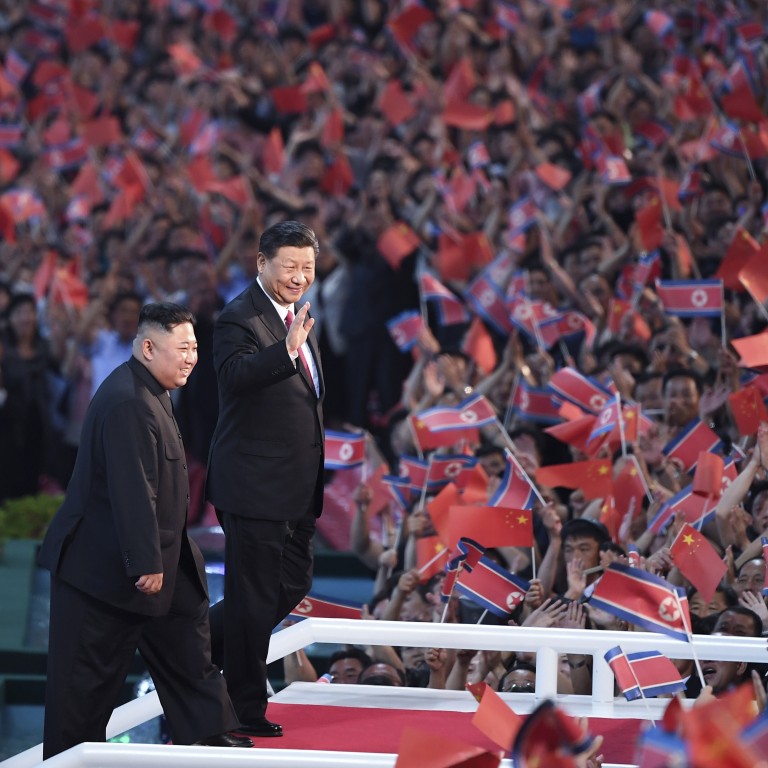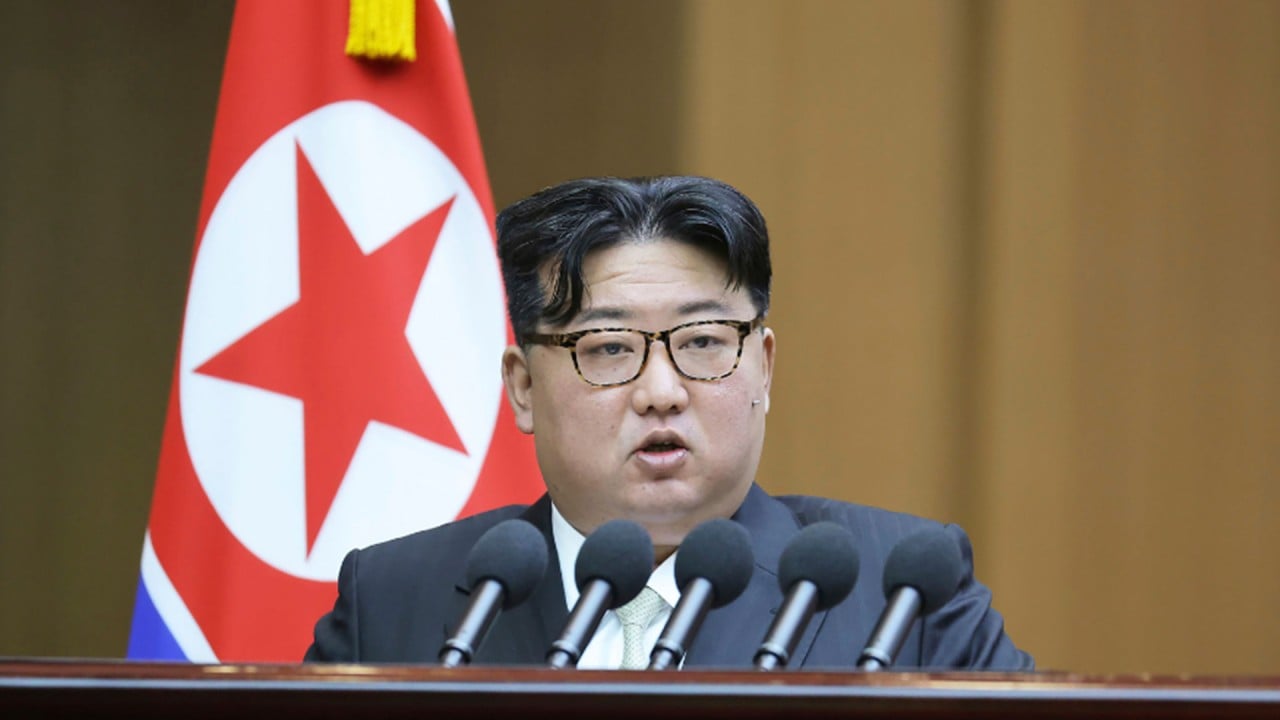
China and North Korea’s ‘friendship year’ need not be bad news for US allies
- The 75th anniversary of Beijing-Pyongyang diplomatic relations comes as Seoul fears being left out in the cold by Tokyo’s overtures to North Korea
- Given that it doesn’t make sense for Beijing to abandon Pyongyang or Seoul, China is more likely to play the role of mediator
Amid growing tensions on the Korean peninsula, China yet again finds itself at the centre of geopolitical uncertainties, this time as both a bridge and a moat between North Korea and the international community.
The Korean Workers’ Party plenum last December discussed the “dangerous security environment” on the peninsula with leader Kim Jong-un denouncing the US-led anti-communist conflict and advocating for closer relations with “anti-imperialist independent countries”. In this regard, growing ties with China are indicative of North Korean attempts to challenge the position of the US and its partners in the region.
While the US, Japan and South Korea have agreed on closer cooperation over the North Korean issue, the potential thaw in North Korea-Japan relations may lead to cracks in the trilateral alliance that Seoul fears could leave it worse off.
Given the current developments in the region, how China navigates its role in a complex security arrangement is pivotal for regional stability and peace. While North Korea would expect China to play the role of a loyal ally, it is highly unlikely that Beijing would isolate Seoul in the process. South Korea is a major trading partner of China and the two nations have interlocked supply chains. Isolating Seoul would risk trade disruptions that could severely affect China’s exports in the region.
How Kim can lead North Korea to an unprecedented economic renaissance
In a scenario where abandoning either Pyongyang or Seoul appears to be off the cards, Beijing is most likely to play the role of mediator. Much like during the times of the Six-Party Talks, China is inclined to prioritise stability in the region. Beijing recognises the need for stable regimes to further its economic interests and hence it is likely to balance its way out of a crisis.
However, China’s support has undoubtedly often strengthened North Korea’s resolve. The era of growing cooperation between China and North Korea has the potential to strengthen the latter’s economy which, if left unchecked, could help boost its nuclear proliferation programme.
Although a nuclear weapons-wielding Pyongyang is Beijing’s problem as well, China is not likely to carry out any harsh measures against North Korea’s belligerence if it finds itself singled out by the US and its allies. Furthermore, any sanctions levied against North Korea will largely be rendered ineffective as Pyongyang will find alternative paths through the channels of Beijing and Moscow.
The US and its allies are facing a severe challenge in the form of the reinvigorated China-North Korea alliance. A major point of concern for the trilateral alliance would be deciding how to approach this predicament. Harsh measures and retaliatory confrontations might only succeed in hardening North Korea’s shell and making China more hostile.
In such a scenario, it is highly implausible that peace and stability could be fostered in the region. On the other hand, cooperation could be a more feasible way forward.
Washington should therefore approach collaboration as two separate issues, working closely with Seoul and Tokyo to ensure that neither of its allies feels threatened to the extent that it may lead to fractures in the alliance.
In parallel, the US should actively pursue cooperation with China with regard to North Korea. While being wary of the threats the China-North Korea alliance could pose, Washington must be open to working closely with Beijing, while prioritising their common interests in the region.
Closer collaboration with China may well push North Korea towards dialogue and cooperation in the near future. Washington must welcome any signs of collaboration and diplomatic advances that might emerge as a result of such an arrangement.
Gagan Hitkari is a PhD candidate at the Department of East Asian Studies, University of Delhi, India



